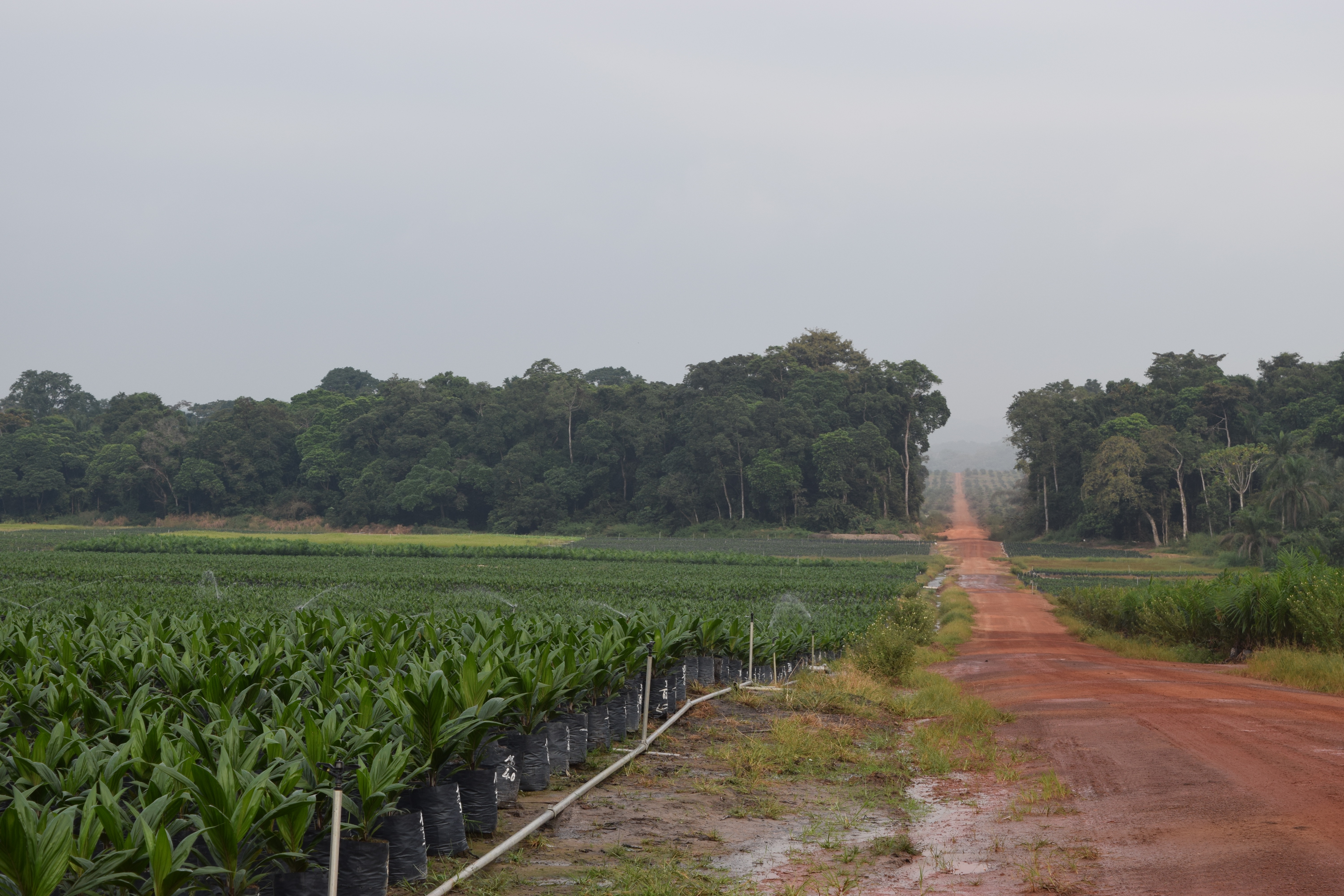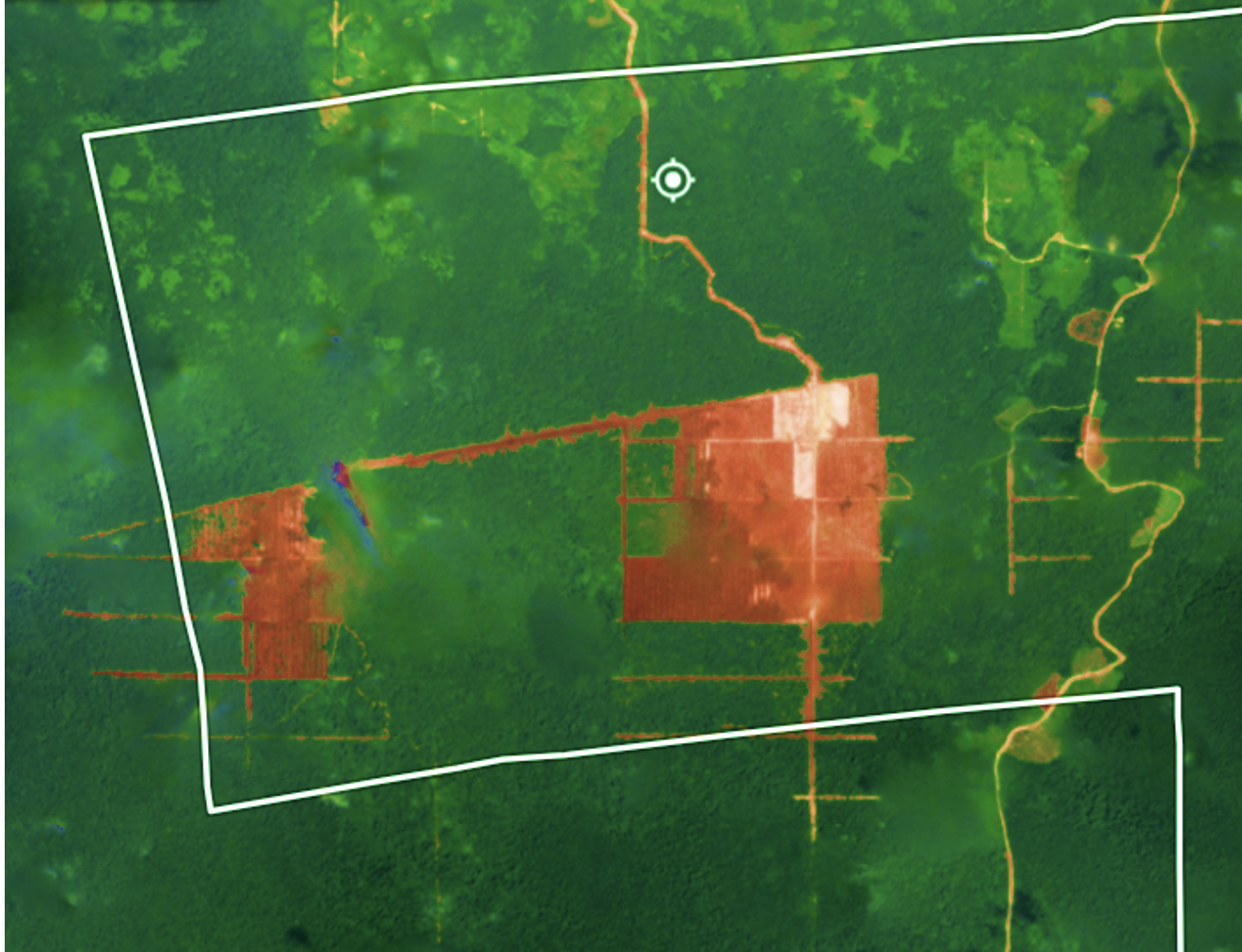
Olam’s oil palm development in Gabon violated Forest Stewardship Council’s deforestation rules
Olam’s oil palm development in Gabon violated Forest Stewardship Council’s deforestation rules.
FSC ‘Policy for Association’ complaint against Olam Group’s deforestation in Gabon
An independent assessment commissioned by the Forest Stewardship Council (FSC) has concluded that Olam Palm Gabon cleared over 24,000 hectares of forest, as well as between 900 and 1,823 hectares of non-forest areas with High Conservation Values, in violation with the FSC Policy for Association. This was the basis of the complaint Mighty Earth filed with the FSC in 2016.
The Executive Summary of the SmartCert assessment are published on the FSC website: English, French and Spanish.
FSC, Olam and Mighty Earth have issued a joint statement on the SmartCert assessment and next steps of the complaint resolution process here.
Complaint History
- In December 2016, Mighty Earth filed a complaint with the Forest Stewardship Council (FSC), detailing evidence that Olam had cleared large areas of rainforest for oil palm and rubber plantation3 development in Gabon and, as a result, violated the FSC Policy of Association – which ‘clearly define FSC’s ability to take such action against companies that engage in any one of the activities listed as unacceptable’, which include deforestation and the destruction of High Conservation Values (HCVs).
- In January 2017, Mighty Earth and Olam took part in a mediation process, facilitated by the World Resources Institute (WRI), which aimed to find an agreement on the recommendations and concerns highlighted in the complaint.
- Since January 2017, Olam has maintained a moratorium on any forest clearance.
- Also in 2017 Olam, Mighty Earth and a coalition of civil society organizations agreed to collaborate on forest conservation and sustainable agriculture. Following a field trip to Gabon, the parties released a joint statement, which was renewed in 2018.
- In May 2019, instead of proceeding with a formal Policy for Association investigation, FSC, Mighty Earth and Olam entered into an Alternative Dispute Resolution process, enabling dialogue between the parties, to address the issues raised in the complaint, through constructive dialogue and mediation.
- In April 2020, the FSC commissioned SmartCert (Canada) to ‘provide a third-party assessment on the alleged violation by Olam of FSC’s Policy for Association, as part of an Alternative Dispute Resolution process.’ The assessment below covers Olam’s oil palm operations in Gabon. A separate FSC investigation into rubber is yet to take place.
- In August 2022 SmartCert completed its assessment. The Executive Summary of the full report in English, French and Spanish are published on the FSC website.
- For further information on the FSC process see FSC’s case history and FSC’s FAQs about the ‘Processing of FSC Policy for Association Complaints.’
Complaint Findings
Context for findings on High Conservation Values (HCVs): The FSC defines HCVs as biological, ecological, social or cultural values of critical importance or outstanding significance within a landscape which require additional protective measures or safeguards to ensure their long-term maintenance. The six categories of HCVs are: 1. Species diversity; 2. Landscape-level ecosystems and mosaics; 3. Ecosystems and habitats; 4. Ecosystem services; 5. Community needs, and 6. Cultural value. FSC.org
SmartCert findings:
- Between January 2012 – December 2016, Olam converted 24,133 hectares (ha) of forest into oil palm plantations.
- Impacts on areas relating to species, habitats, and ecosystem services: (i.e., HCV categories 1- 4)1 between 1,377 and 2,300 hectares (ha), as follows:
- Olam’s Lot 1, Lot 2, and Awala concessions: 413 ha of HCV 1 – 4 were converted into oil palm plantations.
- Olam’s Mouila Lot 3 and extension concessions: an additional 64 ha of forest in HCV 1 – 4 and between 900 ha and 1,823 ha in non-forest areas were converted into oil palm plantations.
- Impacts of oil palm conversion on areas relating to community needs and cultural values (i.e., HCV categories 5 – 6):
-
- ‘FPIC processes were implemented by Olam which obtained the prior consent of communities in exchange for compensation (except in Bemboudié). According to our sampling, Olam has fulfilled the majority (≈85%) of its compensation commitments, including hiring local workers and investing in community projects. However, at the time of our visit, many of the funded infrastructures were degraded and the work conditions offered to workers were criticized.’
-
- ‘no evidence that communities were provided the opportunity to classify use areas as being fundamental to meeting their basic needs (HCV 5) and to delineate protection buffers around them.’
- ‘no definitive evidence that communities agreed to abandon all the cultural sites (potential HCV 6) destroyed during the plantation development’.
-
- Within all concessions, just over half of the areas identified as being fundamental to meeting the basic needs of local communities (i.e., potential HCV 5) have been maintained, 32% were perceived as degraded and 12% have been converted.
- 78% of areas identified as being critical to local communities’ traditional cultural identity (i.e. potential HCV 6) have been maintained, 4% have been degraded and 18% have been converted.
Complaint Resolution Process
As part of the Alternate Dispute Resolution process, the FSC will now hire a third-party to mediate dialogue between Olam and Mighty Earth with the objective of resolving the complaint. The process seeks to determine how Olam will provide ‘full remedy of all environmental and social harms’, in line with FSC’s Remedy Framework which ‘defines permanent and effective measures required for remedy of harm caused by unacceptable activities as defined by the Policy for the Association’.
Amanda Hurowitz, Senior Director at Mighty Earth said:
“The SmartCert assessment concluded that Olam Palm Gabon cleared over 24,000 hectares of forest, as well as between 900 and 1,823 hectares of non-forest areas with High Conservation Values (categories 1-4) in its Moulia Lot 3 concessions, in non-compliance with the FSC Policy for Association. This was the basis of the complaint we raised with the FSC six years ago. We look forward to beginning mediated discussions with Olam about what remedial actions the company needs to take to address the environmental and social harms resulting from its oil palm development.”


